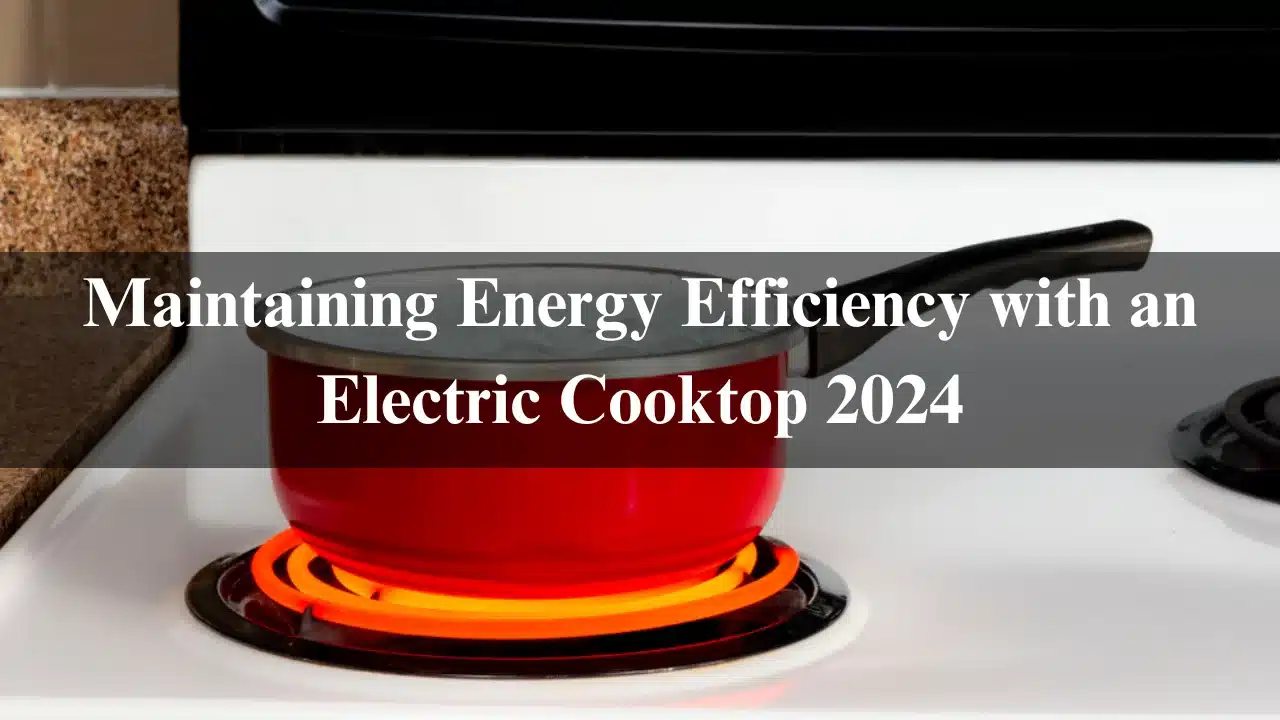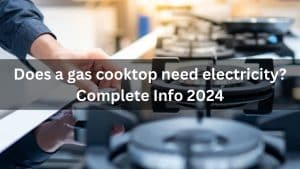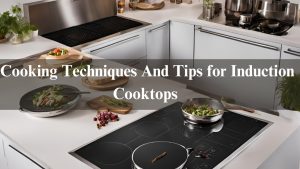Electric cooktops are a staple in modern kitchens, known for their sleek design and ease of use. However, maintaining energy efficiency while using them can help reduce your energy bills and lower your environmental impact. This guide will explore the best practices to maximize energy efficiency with an electric cooktop.
Table of Contents
Introduction to Electric Cooktops
Electric cooktops are a convenient alternative to gas stoves, providing precise control over heat and a smooth, modern aesthetic. Although they are popular for their ease of use, they can consume significant amounts of energy if not used correctly. Learning how to use them efficiently can lower energy consumption while maintaining optimal cooking performance.
How Electric Cooktops Work?
Electric cooktops function by converting electrical energy into heat through resistive elements. When electricity flows through these elements, they heat up and transfer this energy to the cookware. The efficiency of this process depends on the type of cooktop and how you manage cooking practices.
Types of Electric Cooktops
Coil Cooktops
Coil cooktops use exposed heating coils to transfer heat to cookware. These traditional cooktops are affordable but often less efficient due to uneven heating and heat loss around the cookware.
Smooth Glass Cooktops
Smooth glass cooktops feature radiant elements beneath a flat glass surface. They provide even heating and are easier to clean than coil cooktops, but they still lose some energy in the transfer from the surface to the cookware.
Induction Cooktops
Induction cooktops use electromagnetic energy to directly heat the cookware without heating the cooktop itself. They are significantly more energy-efficient, as they waste little energy and cook food faster.
Why Energy Efficiency Matters?
Improving the energy efficiency of your electric cooktop can reduce household energy consumption and lower utility bills. More efficient cooking also means less heat wasted in the kitchen, making for a more comfortable cooking environment. Additionally, it contributes to reducing your carbon footprint, making it a win for sustainability.
What are the Key Factors that Impacting on Cooktop Energy Efficiency?
Several factors influence how much energy your electric cooktop consumes:
- Type of cooktop: Induction cooktops are generally more efficient than coil or glass models.
- Cookware used: The material and size of your pots and pans affect heat transfer efficiency.
- Cooking habits: Regular maintenance and mindful cooking practices can significantly reduce energy waste.
Energy-Efficient Cooking Techniques
Use the Right Cookware
For maximum efficiency, choose cookware made of conductive materials such as copper or stainless steel. These materials allow heat to transfer quickly and evenly, reducing cooking time.
Match Pot Size to Burner Size
Using a pot that is too small for the burner results in wasted heat. Always select a pot that covers the burner completely, ensuring that heat is transferred directly to the cookware.
Keep the Cooktop Clean
A dirty cooktop can affect the transfer of heat, making cooking less efficient. Regularly clean the surface to prevent residue from blocking heat transfer.
Use Residual Heat
Turn off the cooktop a few minutes before the food is fully cooked. The residual heat will continue to cook your food, saving energy without compromising the dish’s quality.
Induction vs. Traditional Electric Cooktops: Which is More Efficient?
Induction cooktops are more energy-efficient than traditional electric models because they generate heat directly in the cookware. This reduces energy loss by up to 50% compared to coil or glass cooktops, where a significant portion of the energy is lost in the air.
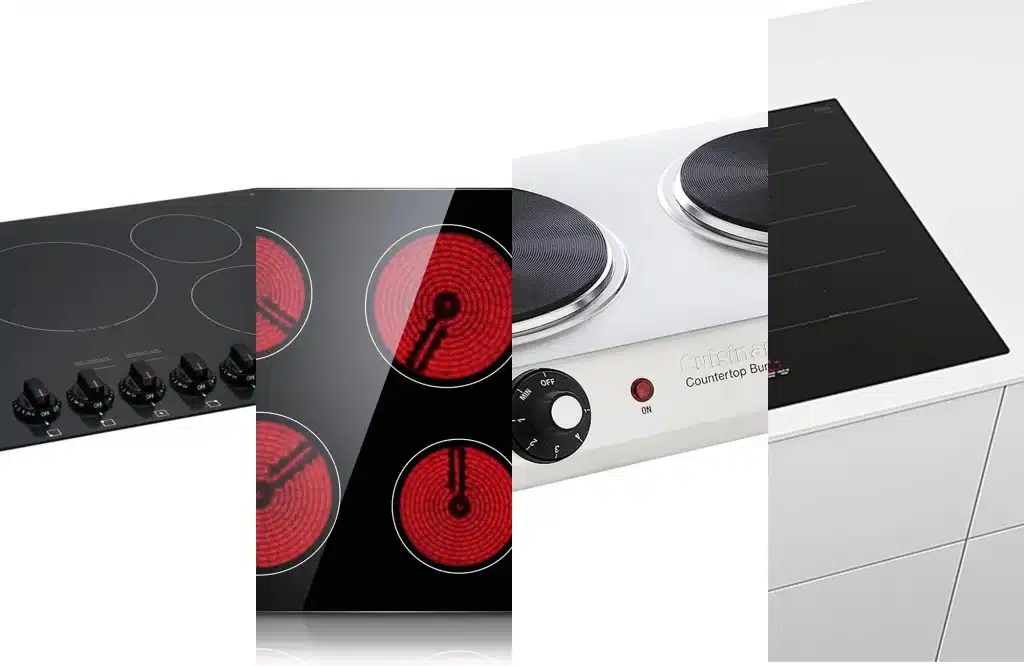
Understanding Heat Settings for Efficiency
Using the appropriate heat setting for different cooking tasks is essential for energy conservation. High heat should be reserved for boiling or frying, while lower heat settings work best for simmering or keeping food warm. Using high heat unnecessarily wastes energy and can result in overcooked food.
Minimizing Heat Loss: Tips and Tricks
Use Lids While Cooking
Covering your pots and pans with lids while cooking traps heat and moisture, allowing food to cook faster and using less energy.
Avoid Preheating for Long Periods
Preheating the cooktop for an extended time wastes energy. If a recipe requires preheating, keep it brief and start cooking as soon as the surface is ready.
Cooktop Maintenance for Optimal Performance
Regular maintenance ensures that your electric cooktop performs at its best, consuming less energy over time.
Regular Cleaning
Keep the cooktop surface and burners clean to avoid energy inefficiencies. Spills and grime can interfere with heat transfer, leading to longer cooking times.
Inspecting Burners and Coils
Check the burners and coils for wear and tear. Damaged elements are less efficient and can lead to uneven cooking, which wastes energy.
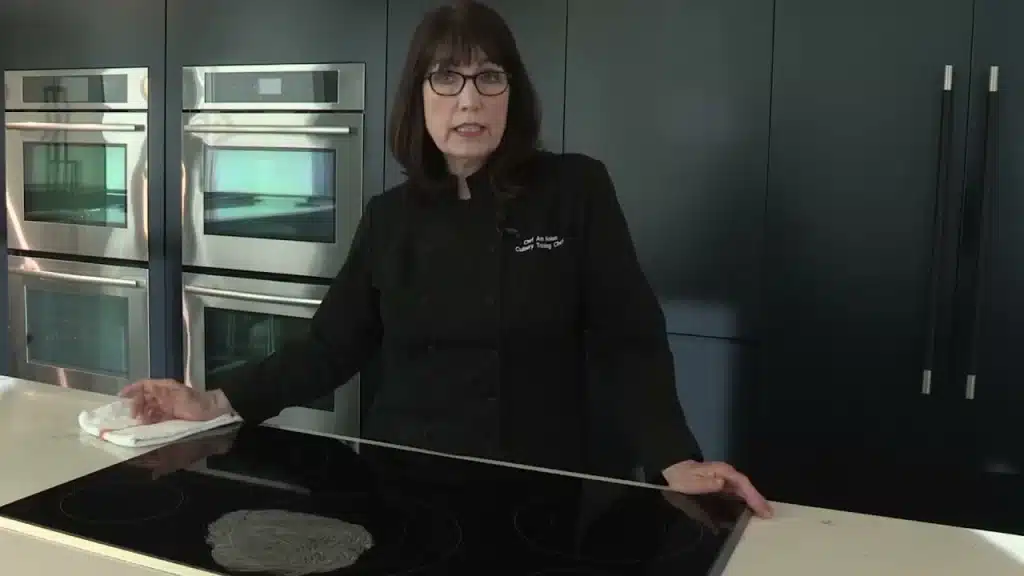
Replacing Damaged Components
If any part of your electric cooktop is damaged, replace it promptly. Faulty components can reduce the cooktop’s overall efficiency.
Cookware Selection for Better Energy Efficiency
Choosing the right cookware plays a vital role in how efficiently your electric cooktop operates.
Material Considerations
Cookware made from stainless steel or copper tends to be more efficient than cast iron, as these materials conduct heat more evenly and quickly.

Flat-Bottomed Pans
Ensure your pots and pans have flat bottoms that make full contact with the cooktop surface. This maximizes the heat transfer and reduces energy waste.
Cooking Habits that Save Energy
Batch Cooking
Cooking large batches of food at once is a great way to minimize energy use. By cooking more at a time, you avoid repeatedly heating the cooktop.
Defrosting Food Before Cooking
Always defrost frozen food before cooking. This reduces cooking time and the energy required to bring food up to temperature.
Smart Cooktops and Energy Efficiency
Smart cooktops equipped with energy-saving features can help you monitor your energy use and adjust settings automatically for maximum efficiency. These cooktops often come with programmable timers, temperature sensors, and automatic shut-off features to prevent unnecessary energy consumption.
Monitoring Energy Usage
You can track your energy consumption using smart meters or energy-monitoring apps. By keeping an eye on how much electricity your cooktop consumes, you can adjust your habits to become more energy-efficient over time.
Key Takeaways
✦ Use the right size pan for the burner
✦ Cook at the proper temperature—don’t crank it too high!
✦ Cover your pots and pans to trap heat
✦ Clean your cooktop regularly to keep it working efficiently
Related Articles:
What’s The Top Best Electric Cooktop With Downdraft?
How does a single burner on an electric stove get hot? 2024
Creative Cooking Techniques on an Electric Cooktop
Conclusion
Maximizing the energy efficiency of an electric cooktop requires a combination of using the right cookware, maintaining the appliance, and adopting energy-conscious cooking habits. By making small adjustments, such as using residual heat, matching pot size to the burner, and keeping the cooktop clean, you can significantly reduce energy consumption. Over time, these efforts will lower your energy bills and help create a more sustainable kitchen environment.
FAQs
Are induction cooktops more energy-efficient than electric coil cooktops?
Yes, induction cooktops are generally more energy-efficient. They heat the cookware directly, minimizing heat loss and speeding up cooking times.
What is the best type of cookware for electric cooktops?
Stainless steel and copper cookware are the most energy-efficient options due to their excellent heat conduction properties. Make sure the pans have flat bottoms for better heat transfer.
How can I clean my electric cooktop for better efficiency?
Regularly clean the surface with non-abrasive cleaners. Avoid letting food residue build up, as it can interfere with heat transfer and reduce efficiency.
Can I save energy by turning off the cooktop early?
Yes, turning off the cooktop a few minutes before your food is done allows residual heat to finish cooking, saving energy.
Do smart cooktops really help with energy efficiency?
Yes, smart cooktops can automatically adjust settings to optimize energy usage and provide features like timers and temperature sensors to prevent unnecessary energy consumption.

